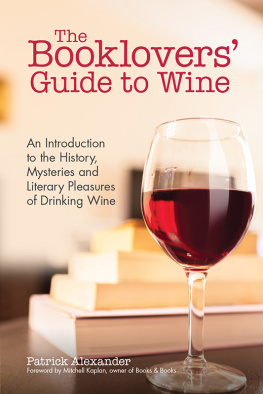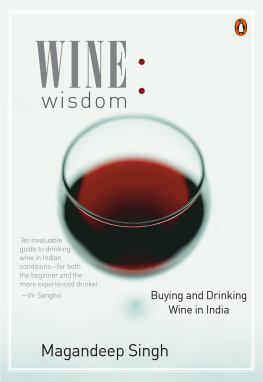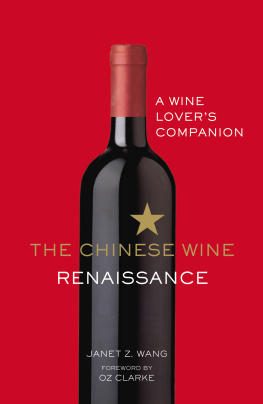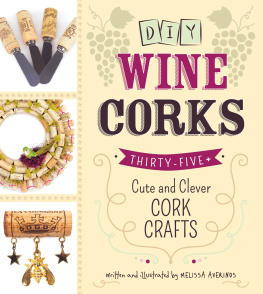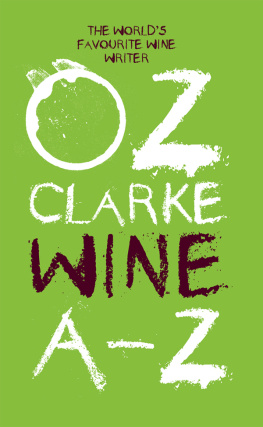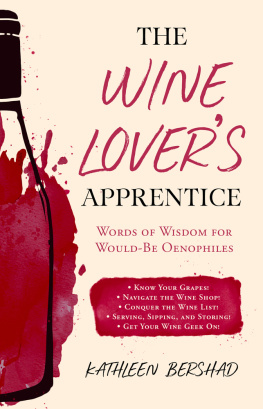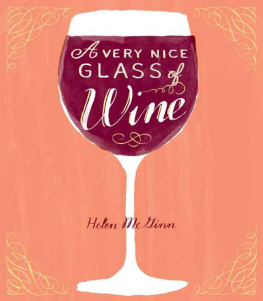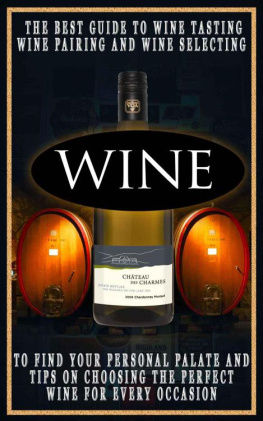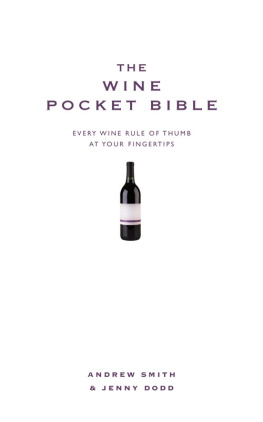

Everyone thinks wine experts live charmed lives. When people find out what I do, their heads fill with visions of me being driven around in a chauffeured Benz, tasting rare bottles. And for sure, there are many less fun things to do in life than to taste, critique, and write about wines from around the world.
In truth, my wine life isnt that different from yours. Ive walked into plenty of wine shops and gotten lousy advice. Ive been tempted by and burned by more wine recommendations than I care to remember. At night, with dinner, Im as likely as anyone to drink whatevers open in the fridge.
Restaurants? I still struggle through wine lists, and regardless of the fact I have a near-photographic memory (only where wine is concerned), I still find plenty of wine on lists that Ive never heard of. Ive had sommeliers talk down to me more times than I can count. And Ive been served wines in shockingly bad condition, like the fancy 100 bottle of Grenache I had not long ago, which came to the table so warm I wondered if it was stored next to the pizza oven. (We asked for an ice bucket.)
I love what I do, and each year I get to taste thousands of wines, including many that few people have access to. But knowing a ton about wine doesnt magically improve your wine life.
In fact, an obsession with wine expertise may have made it harder for us to enjoy wine. We have in many ways been misled by the mystique of wine expertise. Were dazzled by tales of sabering Champagne and blind-tasting bottles of red Burgundy. But these things are really just parlour games. The myth of connoisseurship is that you need to know every little thing, and in truth most wine experts obsess over details that have almost zero bearing on how the rest of us live our lives.
Dont get me wrong: expertise can be valuable. Ive written about wine professionally for about 15 years, including nearly a decade as the wine editor and chief critic of the San Francisco Chronicle, the only U.S. newspaper with its own wine section. That means Ive written hundreds of articles and tasted tens of thousands of wines, which is to say I dont doubt my opinions about wine are better informed than most. I wrote a book, The New California Wine, that documented the rebirth of interest in the states wines. And Im the junior wine nerd in our household; my wife imports and sells some of the worlds best wines. Our bookshelves are filled with wine books and our walls are covered with vintage vineyard maps.
In other words, it is both of our jobs to know a lot about wine. And both of us have concluded that wine isnt something you need to learn about in classes or by chasing a degree. Wine is something that becomes a part of your life in gradual, almost invisible, steps.
I was lucky, I grew up with wine around the house; it was a semiprofessional interest of my father and I learned about it from him more or less osmotically, the way other kids might learn about football. I never had a grand moment of enlightenment. Then I forgot all about it, went off to university, and became a journalist. Years later, that interest returned, and after I started sneaking wine into most of my stories, I finally proposed to my editor that I write a column. So began my career as an expert.
Expertise, however, comes gradually. Early on in that career, when I was less confident, I made a classic mistake: I pretended to know more than I did, which made me the worst of all things a wine snob. Once I rejected a bottle of Barbera with my pizza because it was way too tannic. (Barbera is actually known for having almost no tannins; its a great pizza wine.)
Eventually I become comfortable with admitting what I didnt know. I tasted and drank a lot of wines, and started to put the pieces together. I never wanted to be a sommelier, and I never got an official blessing to be an expert. You dont need one either.
Especially not now. The old ways of wine are fading into the distance. A handful of once-powerful wine tastemakers are now much less powerful. Wine drinkers today are more self-assured, and less reliant on point scores and so-called expert wisdom.
All of which made me wonder: what can an expert offer? Certainly the world doesnt need another drink this, not that book. Instead, The New Wine Rules was born out of the idea that the most valuable thing I can share is a handy summary of the practical things Ive learned about incorporating wine into everyday life: how to figure out what you like, how to pick out a bottle for this weekends barbecue, when to splurge and when to keep it low-key.
For that reason, you wont find a lot of talk here about varieties and regions. A thousand other books have covered those things, and they can help you dive deeply if you choose. Theyre details to learn at your own pace and in your own time, and frankly the world of wine has grown so vast that its impossible for anyone to know it all. What matters is learning to figure out what you like.
The nice part of doing this is that now is the best time in history to be drinking wine. The sheer diversity of flavours and styles and grapes available today is greater than ever. If I can share one bit of advice as you read along, its this: drink wine with joy. Perhaps thats obvious, but remember that at least in the UK and USA, the past couple of generations of wine lovers have spent their lives guided by fear of displaying bad taste or revealing what they dont know.
Screw that. Fear was the guiding principle of the past. Were officially done. Wine is too great a thing to be limited by fear.
So drink with joy and never let go of your curiosity. Wine is an endlessly complex and fascinating part of our culture. A curiosity about it can span a lifetime, although it doesnt have to. It certainly has filled up my life. Now is the time to share some of what Ive learned along the way.
RULE 1
Drink the rainbow.
The world of wine today is more diverse and interesting than it ever has been. Its a shame that the vast majority of wine drinkers dont take advantage of it.
This isnt anyones fault. By and large, were creatures of habit, and wine is, as much as anything, a habit. If you like Chardonnay, youll probably keep drinking Chardonnay, because its known to you. And once you get attached to Brand X, youll probably keep drinking Brand X unless someone gives you a good reason to switch.
And the wine industry knows, deep down, that most of their customers are still driven, more than anything, by fear. So they like to offer familiar, narrow choices. Do you want white or red? Pinot Noir or Malbec? France or California? How about another Prosecco?
The good news is that this way of thinking was largely promoted by the generation that started drinking nearly forty years ago. The 1980s were a time when wine was something mysterious that needed to be decoded. That was an era of simplistic slogans and choices.
Today is different. Today we all have the freedom to drink without borders to enjoy an ever-changing roster of styles and regions and grapes. Gamay Noir from the Sierra Foothills? Skin-fermented Muscat from Pantelleria? Why not?

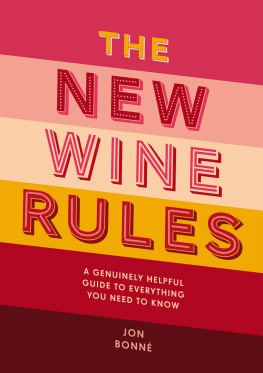
![Jon Bonné - The New French Wine [Two-Book Boxed Set]: Redefining the Worlds Greatest Wine Culture](/uploads/posts/book/443558/thumbs/jon-bonn-the-new-french-wine-two-book-boxed.jpg)

